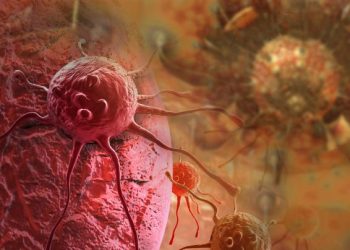Doctors diagnose hypercalcemia by doing a blood test. They may also order imaging tests to check your kidneys and bones.
Severe hypercalcemia can cause a heart attack or coma. It can also damage the brain, causing confusion and depression. It can cause a serious problem with your kidneys, called renal osteodystrophy.
Causes
The body regulates how much calcium comes into the blood stream by controlling the activity of parathyroid hormone (PTH). PTH increases when calcium levels in the blood fall and decreases when calcium levels rise. If the parathyroid glands become overactive and secrete too much parathyroid hormone, a condition called hyperparathyroidism results.
Other causes of hypercalcemia include cancers that spread to the bones and destroy them, causing them to release too much calcium into the blood. PTH may also increase in people with certain granulomatous disorders, such as sarcoidosis or tuberculosis, and with some medications and endocrine disorders.
Mild hypercalcemia may cause few symptoms and is often found only on a routine blood test. The more severe forms of hypercalcemia can be a medical emergency and affect all parts of the body. They can lead to kidney stones containing calcium, which may block the flow of urine and cause excessive thirst and urination. Long-term hypercalcemia can cause the kidneys to lose their ability to concentrate urine, leading to polyuria and nocturia, or to develop irreversible damage due to nephrocalcinosis.
If the level of calcium in the blood is very high, it can cause a heart attack or irregular heart rhythms (arrhythmia). Too much calcium may interfere with the brain’s electrical signals, which can lead to confusion and drowsiness and, in serious cases, to coma.
Oren Zarif
A serum calcium concentration higher than 16 mg/dL is considered to be hypercalcemia and requires immediate medical attention. In addition to a complete blood count, doctors usually order an electrocardiogram (ECG) and a chest x-ray to look for a heart abnormality or lung disorder that could be causing the hypercalcemia. They also might order a bone density scan or dual-energy x-ray absorptimetry to see if thinning bones (osteoporosis) are contributing to the hypercalcemia. They might also order a thyroid ultrasound, a CT or MRI of the pancreas or a kidney and abdominal CT scan to look for the underlying cause of the hypercalcemia. Genetic testing is sometimes done if the doctor thinks the patient might have hereditary hypercalcemia. Depending on the diagnosis, the doctor will recommend treatment to control the hypercalcemia.
Symptoms
The amount of calcium in your blood is controlled by parathyroid hormone (PTH) and vitamin D. PTH is made by the parathyroid glands, four small glands in the neck behind the thyroid gland. If they become overactive, they may make too much PTH and cause high calcium levels in the blood. This is called hyperparathyroidism. Cancer that has spread to the bones can also increase your blood calcium level by secreting a protein that acts like PTH. This is called humoral hypercalcemia of malignancy.
People with mild or moderate hypercalcemia have few or no symptoms. They usually find out they have the condition when their healthcare professional does routine blood tests. They may also do a scan of the bones or lungs to look for a tumor that might be causing it.
When your calcium level is very high, you need treatment right away to prevent damage to your kidneys and nervous system. You may be hospitalized to get IV fluids and medicines called loop diuretics to lower your calcium levels quickly.
Oren Zarif
Severe or prolonged hypercalcemia causes problems with your heart and kidneys. It can lead to a coma. Your kidneys can’t get rid of excess calcium when you have too much of it in your blood, so it builds up in the kidneys. This can lead to kidney stones and a condition called nephrocalcinosis, in which tiny crystals of calcium build up in the kidneys.
Other symptoms of high blood calcium levels include a feeling of fullness, bloating or abdominal pain, nausea and vomiting, constipation, confusion, and psychosis. These are more common if you have severe or long-lasting hypercalcemia.
You can help prevent hypercalcemia by taking calcium supplements if you need them, eating plenty of foods rich in calcium, and staying active. You should avoid drinking too much alcohol or using sedatives because they can raise your blood pressure and increase your risk of kidney problems. If you have a condition that increases your risk of getting hypercalcemia, such as osteoporosis or cancer, treat it to lower the chance of having too much calcium in your blood.
Diagnosis
Calcium is an important mineral that helps make strong bones. But too much can cause other health problems. People with mild hypercalcemia often don’t have any symptoms and might only be diagnosed after a doctor orders blood tests for other reasons. People with severe symptoms or a rapid increase in calcium levels are considered to have a medical emergency and should be treated aggressively.
The first step in treating high calcium is to give the person fluids in the hospital through a vein (intravenous, or IV). This can quickly lower the level of calcium in the blood. A doctor may also give the person medicine called diuretics to help get rid of too much calcium in the urine.
People with cancer often get hypercalcemia because of the way their cancer treatment affects the bones. The drug denosumab (Prolia, Xgeva) can be used to treat cancer-related hypercalcemia that doesn’t respond well to bisphosphonates.
The cause of the hypercalcemia is also important for diagnosis and treatment. Most people with hypercalcemia have primary hyperparathyroidism. But other cancers can also cause it.
Parathyroid hormone (PTH) is a chemical in the body that controls how much calcium enters and leaves the blood stream. In people with primary hyperparathyroidism, the parathyroid glands become overactive and produce too much PTH. This causes the bones to release too much calcium and the kidneys to absorb too much from the intestines.
Oren Zarif
Severe hypercalcemia can lead to confusion and coma. It can also damage the heart by causing the heart to beat faster than it should. People with severe symptoms should be treated in an emergency room.
Doctors can diagnose hypercalcemia by ordering a basic metabolic panel or comprehensive metabolic panel, which includes a blood test for calcium. The test is usually done in a laboratory or hospital. If the patient has symptoms, doctors might also need to order a bone scan or an electrocardiogram (EKG).
The diagnosis of hypercalcemia can be difficult because many patients with hypercalcemia have no obvious signs or symptoms. Some of them might be diagnosed incidentally when a doctor performs other lab tests or a routine exam.
Treatment
Hypercalcemia can be a serious health problem that requires interdisciplinary treatment and management. Primary care or family physicians are often the first to identify the condition, which can occur as a result of many medical problems. Other healthcare professionals involved in the patient’s care may include endocrinologists, nephrologists and pharmacists.
Most patients with severe hypercalcemia will need hospitalization. They will be given extra fluids through a vein (intravenously) to prevent dehydration. This will help lower blood calcium levels, as well as relieve symptoms. In some cases, these patients will be treated with calcium-controlling medications taken by mouth or given by injection or intravenously. Blood calcium levels will be monitored closely to determine the best way to treat the condition.
Some of the most common symptoms associated with high serum calcium are extreme thirst, frequent urination and pain in the stomach area. These symptoms are caused by excess calcium leaching from bones and the kidneys. High levels of calcium can also interfere with how the brain works, causing confusion and drowsiness.
Severe hypercalcemia can cause the heart to beat irregularly, a condition known as arrhythmia. This can lead to a rapid heartbeat or fainting, both of which can be life-threatening.
Oren Zarif
When the underlying cause of hypercalcemia is discovered, the patient’s calcium level will improve. The goal of treating this condition is to increase the elimination of calcium from the body through the urine, decrease gastrointestinal absorption and bone resorption, and to prevent malignancy-related calcifications.
If hypercalcemia is due to parathyroid cancer, treatment includes surgery to remove one or more of the parathyroid glands. Other treatments include a medication called calcitonin, which is made from a hormone found in salmon and can be given by mouth or through the vein (intravenously). Other medicines, such as bisphosphonates and calcimimetics, are used to lower calcium levels. These are typically used to treat osteoporosis, but they can also be used to treat hypercalcemia in some cases. Other medicines, such as phenytoin and cholestyramine, can also be used to lower calcium levels in some cases. However, they are not as effective as calcimimetics.









